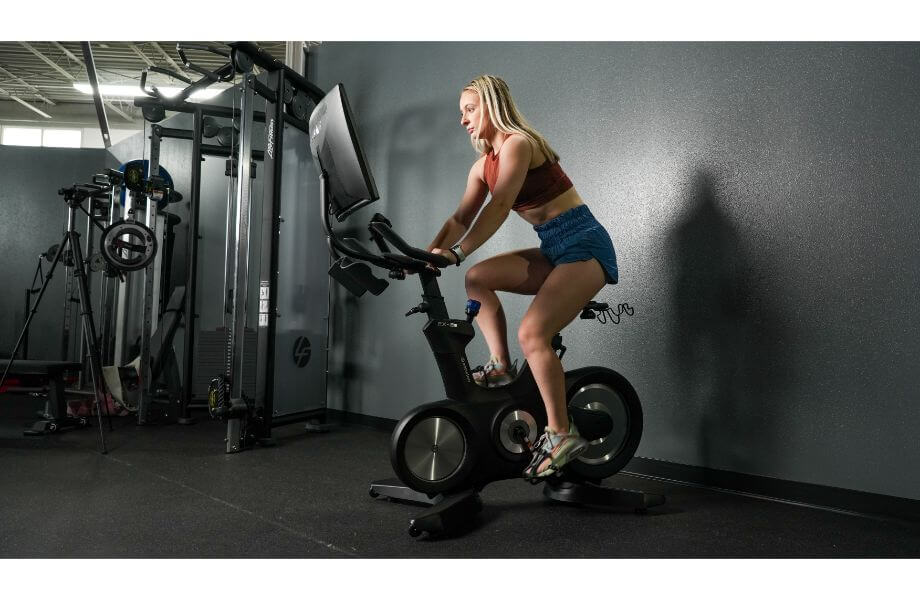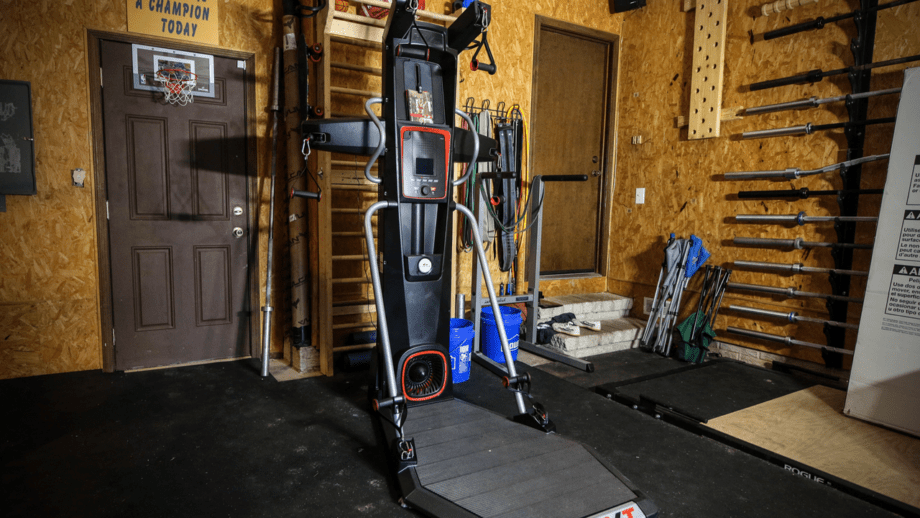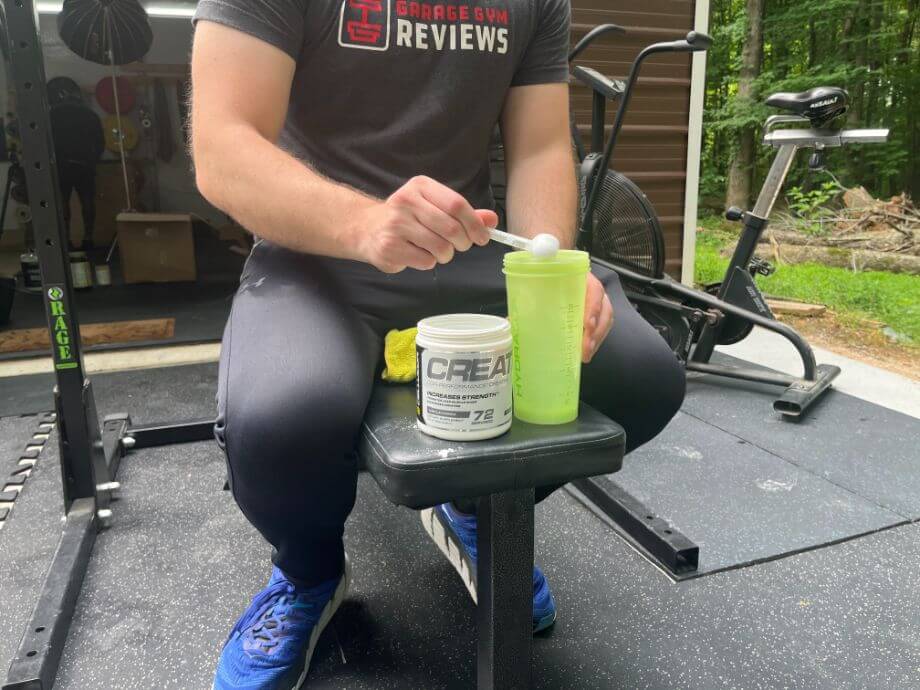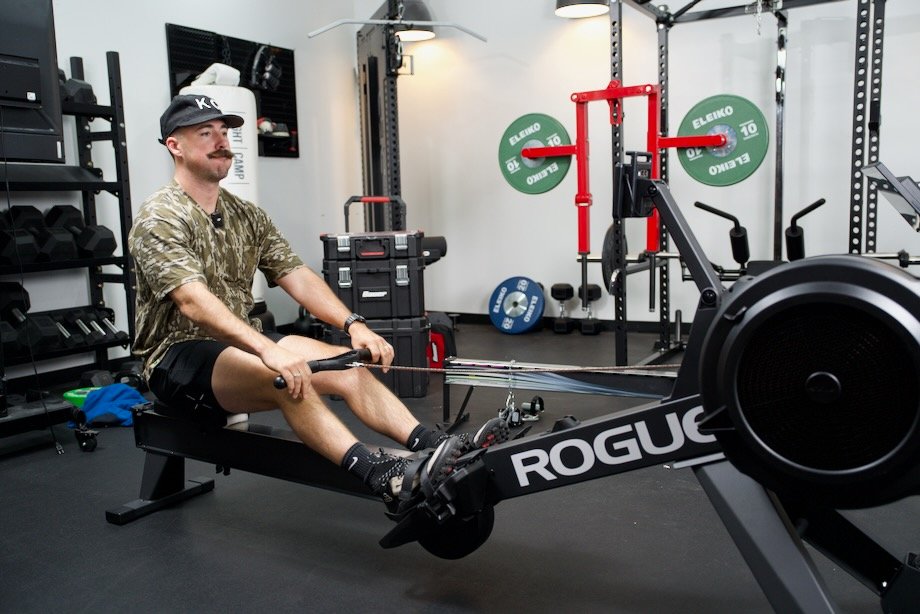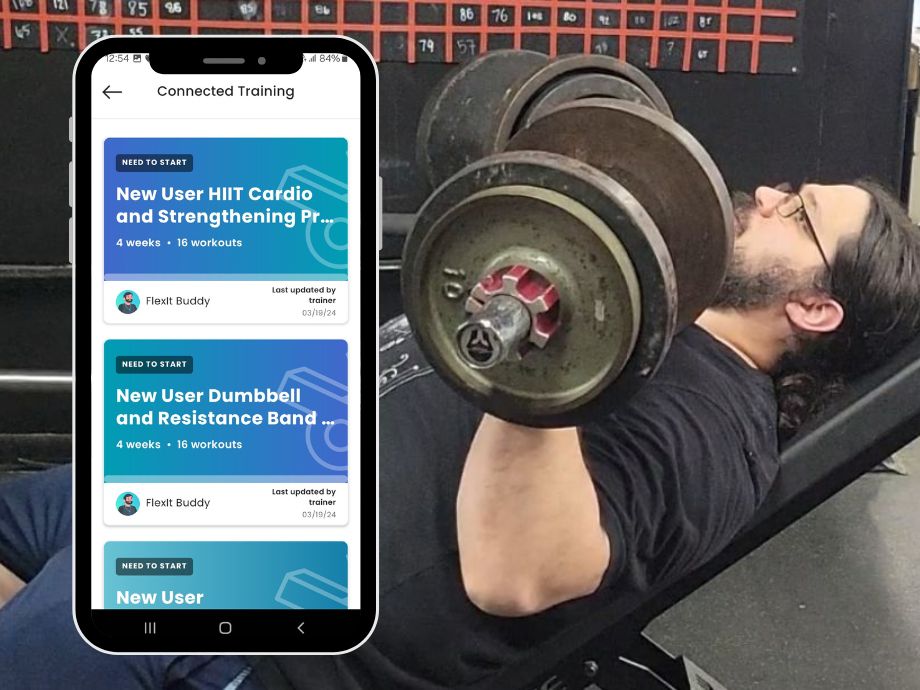Your legs are pumping, heart’s racing, knees weak, arms heavy, mom’s spaghetti…OK, those last two may not be factors when riding a bike, but the rest are undeniably true. And that goes for whether you’re doing a high-intensity interval training or HIIT bike workout at home or road biking at your nearest mountain trail.
During all that pedaling, you may have thought to yourself, “Does cycling build muscle?” You are, after all, using them to pedal against resistance, whether that’s from a belt on your favorite exercise bike or a steep incline. So surely that’s going to come through in your quads and hamstrings, right?
Well, the answer’s somewhat complicated, but that’s why we’re here. We’ll give you the real answer on whether this popular cardio workout can also be a substitute for leg day at the gym (spoiler alert: you’ll still have to squat every so often).
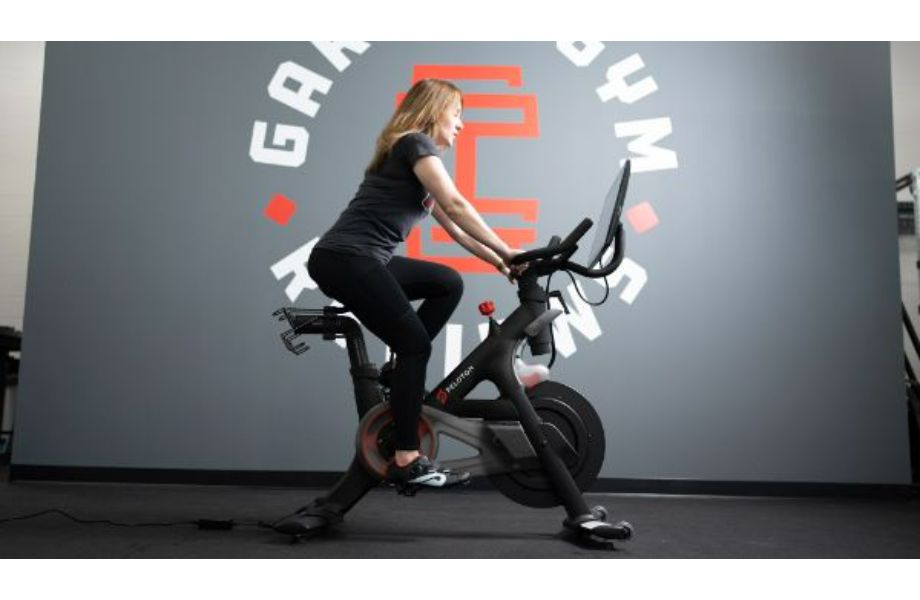
Insight From Personal Trainers
For this article, we reached out to certified personal trainers and competitive athletes who have dedicated their lives to understanding how different exercises can impact certain muscles. If that’s not enough, we also back up what we say through scientific research to show you that we know what we’re talking about.
Beyond that, we’ve tested and reviewed some of the best exercise bikes on the market to let you know which ones deserve a spot in your home gym.
Can I Build Muscle by Cycling?
The short answer is yes, you can build muscle mass by cycling. “It’s a low-impact exercise that works multiple muscle groups without putting a lot of stress on your joints,” GGR Head of Content and certified personal trainer Kate Meier explains. “Any time you use your muscle groups, there is an opportunity to build them.”
But, there are a lot of caveats attached to that. Most importantly, a review of scientific studies that looked at the benefits of cycling found that you would have to do cycling for “a longer period to significantly increase muscle size compared to typical resistance training due to a much slower hypertrophy rate.”
In English, you’ll grow your legs and make them stronger much quicker with leg extensions and good old-fashioned back squats than on a bike.
This is because you can only produce so much resistance on a bike, and in most cases, it’s not going to be as much as you can get from a loaded barbell.
But, as Kate explains, there are three ways to build muscle: increase muscular endurance, muscular strength, and muscle size. Your leg day will take care of the last two, but cycling can take care of the first.
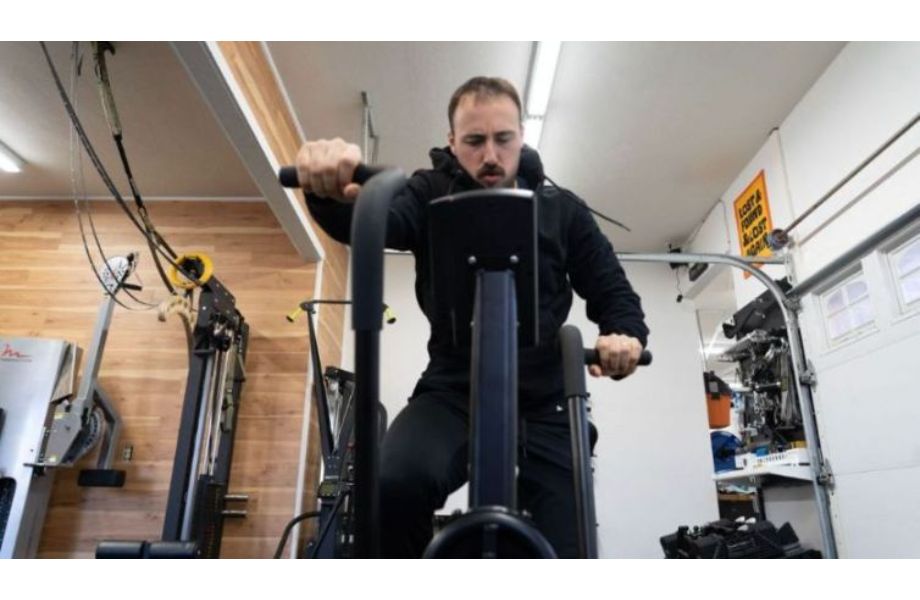
“Cycling is best for building muscular endurance, which is a muscle’s ability to continue to perform or contract against resistance,” Kate says. “Over time, you’ll be able to go for longer rides, or spend more time riding at higher resistances, because you’re building muscular endurance.”
That’s why some sports coaches have players use stationary bikes to keep up their stamina when they’re unable to run. Caroline Lubinsky, GGR fitness writer and a former professional soccer player, can attest to this.
“After hurting my ankle, I spent quite a lot of time on an exercise bike so I could maintain some of my stamina while my teammates ran,” she says. “Exercise bikes were utilized by our athletic trainers because they’re a low-impact way to get your heart rate up.”
The result? She was able to quickly get back on the pitch when her ankle healed.
You will build some muscle strength while riding a bike, but again it won’t be enough compared to what you can get from weight training.
On the flip side, a study in the Scandinavian Journal of Medicine and Science in Sports found that strength training improved elite cyclists’ performance because their legs were able to produce more power.
What Muscle Groups Does Cycling Target?
Cycling works a large number of lower-body muscles, including:
- Quads
- Glutes
- Hamstrings
- Posterior chain
- Calves
- Thighs
- Glutes
- Knees
- Hip flexors
- Ankles
Some upper-body muscles may be toned during cycling workouts, depending on what form of exercise you’re doing.
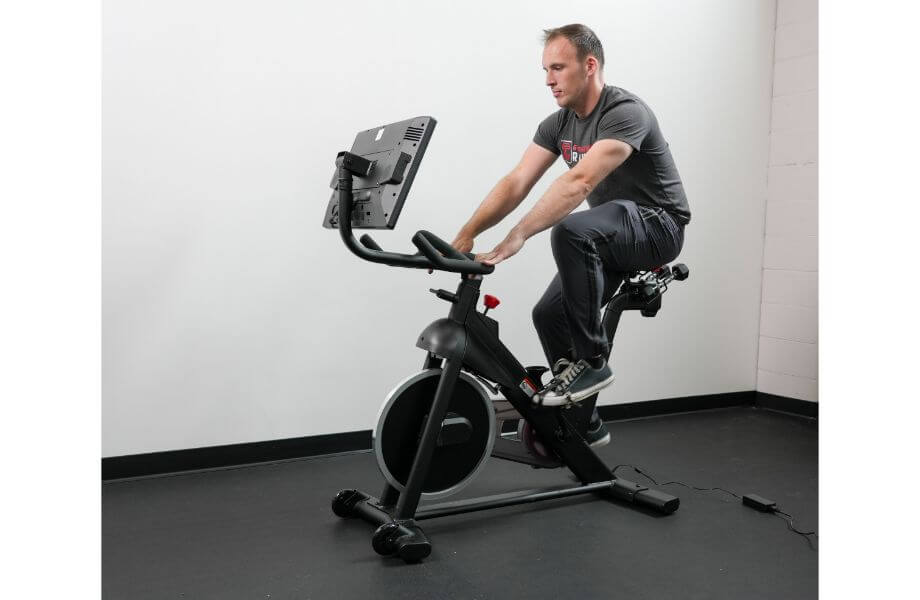
How Can I Build Muscle While Cycling?
There are two primary ways you can build muscle while cycling. The first is by increasing the resistance on your bike.
Similar to how you would achieve progressive overload in the weight room by increasing the weight or volume of a certain exercise, you can strengthen your leg muscles while cycling by making the ride more difficult and then proceeding to ride at that resistance for longer periods of time until that gets too easy for you.
You then simply wash and repeat at a higher intensity.
You can also try standing up from your bike seat. Since you’ll be pushing down with all your body weight, you’re putting more resistance on your legs, and more resistance equals more muscle growth, especially for your calf muscles (which work to keep your feet pedaling).
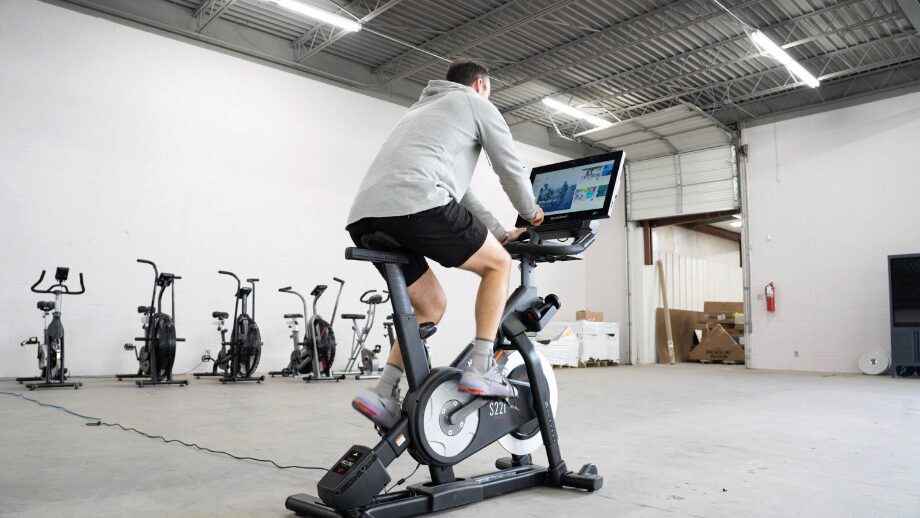
Benefits of Cycling
Indoor cycling bikes are one of our favorite cardio machines (we’re also big fans of off-road bikes), not just because they’re fun but because they also have a number of health benefits. Here are just a few.
Reduces Risk of Cardiovascular Conditions
One scientific review of more than 5,000 studies found that cycling was an effective way to reduce your risk of all cardiovascular diseases and conditions such as heart attacks, deep vein thrombosis, strokes, and abnormal heart rhythms.
Increases Stamina
A bike ride increases your heart rate, which over time leads to better stamina and cardiovascular fitness. It should be noted that this is true of all aerobic exercises.
It’s a Low-Impact Workout
Running involves a lot of foot striking, which can cause some stress to your joints and muscles (especially your knees). Cycling, on the other hand, doesn’t have nearly as much impact but still gets your heart rate up.
Improves Balance and Posture
Keeping yourself balanced on a bike can help you achieve better posture and balance during your everyday life, according to studies. This is one reason why personal trainers may recommend exercise bikes for seniors since they can help prevent falls and other injuries.
Improves your Mental Health
Studies have shown that cycling has a calming effect on the brain and can even help improve cognitive function in older adults.
Strengthens Your Legs
As we’ve discussed above, cycling, especially at higher resistance levels, can strengthen your legs.
Can help with Weight Loss
Cycling is an easy way to burn calories and achieve a caloric deficit, which is when you expend more calories than you consume in a day, and may help you reduce your body fat.
Should I Cycle Every Day?
There’s no workout that you should do every day, and cycling is no different. Your body needs time to rest and recover from strenuous activities, and failing to give it time off can lead to what’s known as a catabolic state, which is when your body is breaking down muscle rather than building and repairing itself.
A catabolic state can also lead to a weaker immune system and disrupted sleep patterns.
Does Cycling Build Muscle: Our Final Thoughts
If you look at any professional cyclists’ quadriceps, there’s no doubt that their legs are strong. But these people are biking hundreds of miles per day, sometimes in some of the most difficult terrains on Earth.
For the average person, biking doesn’t provide enough resistance to grow muscles. It can be a great accessory to your other leg workouts, but it shouldn’t act as a replacement. That said, there are a number of other health benefits associated with cycling, which is why it’s one of our favorite cardio workouts.
Does Cycling Build Muscle FAQs
Will my legs get bigger from cycling?
Your legs can get bigger from cycling, but it will take many weeks, perhaps months at high resistance levels until you see results. A much more efficient way to grow your legs would be to lift weights, such as doing heavy back squats.
Which muscles are toned by cycling?
The muscles toned by cycling are:
-Quads
-Glutes
-Hamstrings
-Posterior chain
-Calves
-Glutes
-Knees
-Hip flexors
-Ankles
Cycling can work some upper-body muscles, such as your arms and shoulders, but the impact to those areas are minimal at best.
How often should you cycle to build muscle?
There’s no definitive answer to this, as it will depend on what resistance level you’re using, whether you’re on an incline or not, your fitness level, and a number of other factors.
What kind of cycling builds muscle?
Cycling of any kind, whether indoor or mountain biking, can help build muscular endurance.
RELATED: Indoor vs Outdoor Cycling


